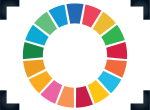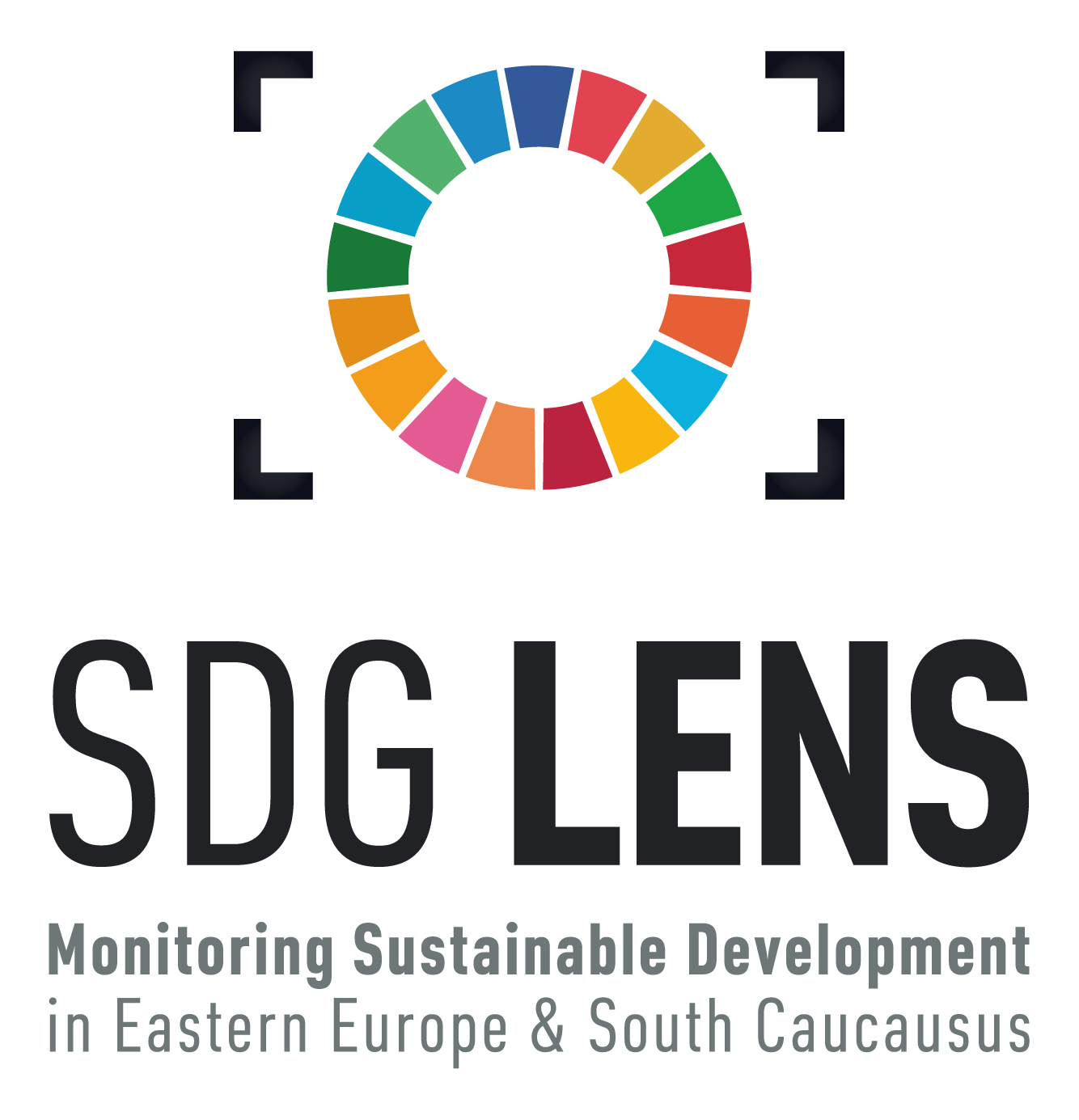Global Week to Act for SDGs
Are you ready to take action for the SDGs in your community, country or globally? Join the Global Week to Act4SDGs, a worldwide initiative that brings people together in support of the Sustainable Development Goals. It takes place every year during the high-level week of the UN General Assembly in September and is a unique opportunity to show world leaders that civil society is committed to the 2030 Agenda. This universal plan aims to create a better world, end poverty, fight inequality and tackle the critical challenge of climate change. Take part in the Global Week to Act4SDGs and become part of a global movement!
How can you engage in the Global Week to Act4SDGs?
Whether it’s an advocacy campaign, a local action or an online event – anything is possible during the Global Week to Act4SDGs. Take action and call on your government and world leaders to implement the 2030 Agenda. Check out the Action Guidelines and do not forget to register your action on the Global Map!
How can SDG LENS support you?
Following an open call for applications in the summer, SDG LENS supports advocacy or mobilization actions for the Global Week to Act4SDGs every year. Subscribe to our newsletter and social media channels to be informed about the next open call.
Need inspiration for your own action or campaign? Take a look at the projects SDG LENS has supported in previous years:
Youth for Sustainable Change, Georgia
Recognizing the pivotal role that youth play in climate adaptation, the project “Youth for Sustainable Change!” aimed to bridge the gap in access to reliable information on sustainable development. In Georgia, despite the urgency of environmental challenges, universities currently lack programs or courses in the field of environmental studies. In response to this gap, the Regional Sustainable Development Institute has initiated a promotion campaign to increase awareness about Sustainable Development Goals (SDGs) among universities and the wider public, addressing SDG 4 “Quality Education” and SDG 13 “Climate Action”. The campaign involved the creation of two videos featuring interviews with experts, entrepreneurs, and students who share insights on sustainable living, climate adaptation, and responsible consumption. Furthermore, two articles were published and informative materials were delivered directly to relevant stakeholders within Georgian universities.
Watch the videos in Georgian:
We are the ChangeMakers, Azerbaijan
In Azerbaijani rural areas, the challenges faced by impoverished women, disparities in well-being, gender inequalities in workplaces, and educational gaps among young and elderly women are pressing concerns. Azerbaijani Women in Science (AWiS) is addressing these challenges and launched an online training series and awareness campaign for school girls and their parents, focusing on SDG 3 “Good Health and Well-Being”, SDG 4 “Quality Education”, SDG 5 “Gender Equality” as well as SDG 10 “Reduced Inequalities”. The comprehensive training series encompassed workshops on the SDGs, legal and psychological training, as well as sessions on IT, AI, Data Analytics, and career development. By emphasizing equal rights of girls, the campaign aimed to increase awareness among parents about the pivotal role of education and support for girls.
Gender Equality for Sustainable Development in Guria Region, Georgia
How can SDG 5 “Gender Equality” and the Gender Equality Action Plans of the three self-governing units of the Guria region – Chokhatauri, Lanchkhuti, and Ozurgeti municipalities – be reconciled? Through a series of three comprehensive trainings for municipality representatives, the Institute for Development of Freedom of Information (IDFI) facilitated a comparison between the local action plans and the nationalized matrix of Georgia, centered around SDG 5. The primary goal was to engender a discourse on integrating national indicators into the annual action plan and forging a cohesive, long-term gender equality strategy. Specific indicators targeted the prevention of violence against women and domestic violence as well as the recognition and valuation of domestic work by intertwining it with the provision of public services.
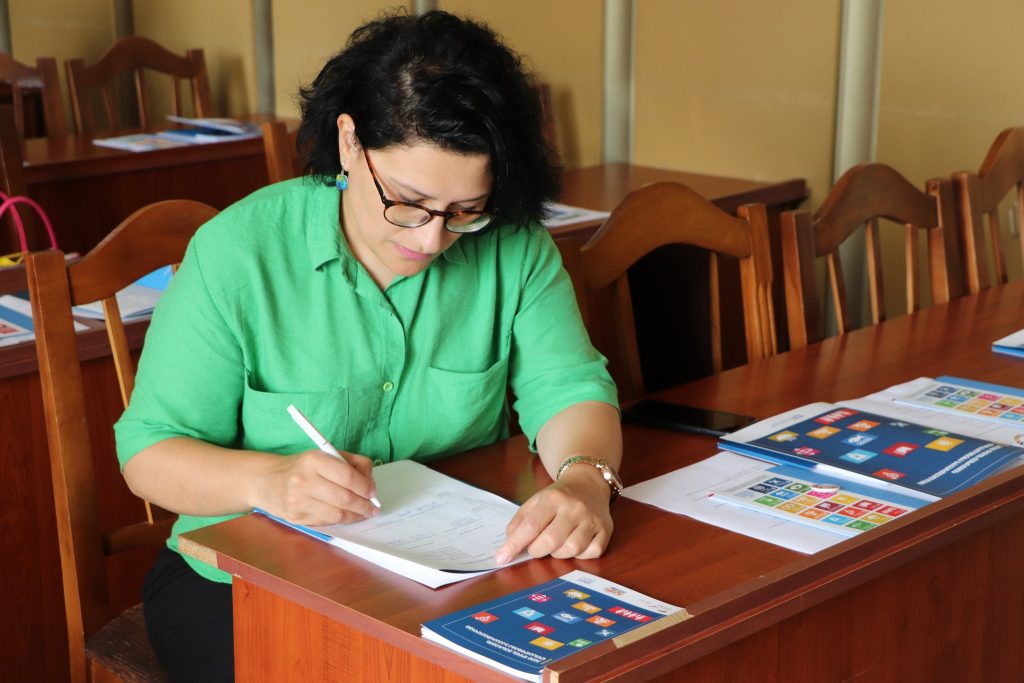
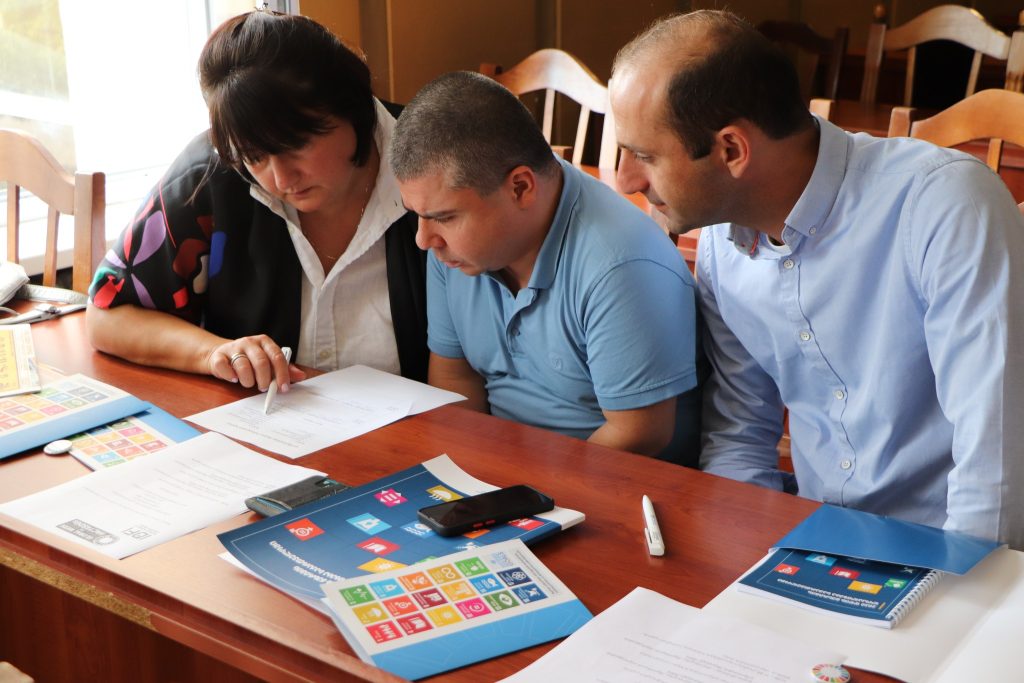
#Act4GreenerYerevan, Armenia
#Act4GreenerYerevan stands as a dynamic week-long environmental awareness campaign led by Armenian Progressive Youth with yound people from Yerevan and its satellite communities targeting SDG 13 “Climate Action”. The initiative aimed to spark a public dialogue addressing the pressing environmental issues confronting Yerevan today. These challenges include elevated levels of air pollution as well as the release of harmful substances from motor vehicles, mining activities, and intensive construction work in and around the city. Through a series of online and open-air workshops as well as a plogging event at Azat Reservoir, the campaign involved over 120 young individuals.
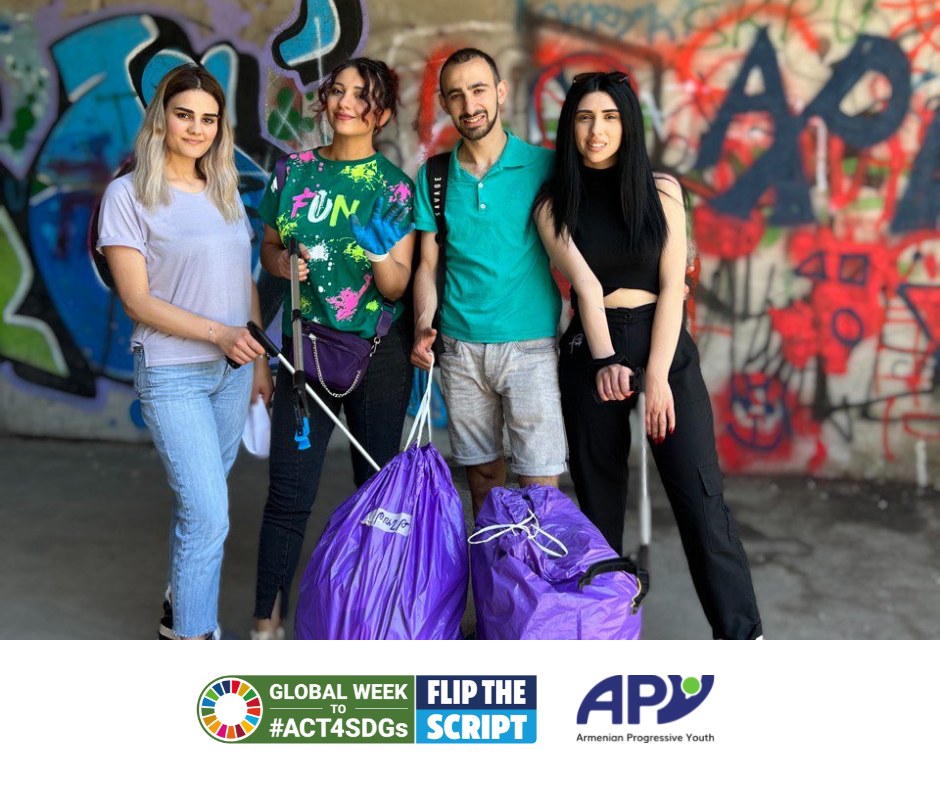
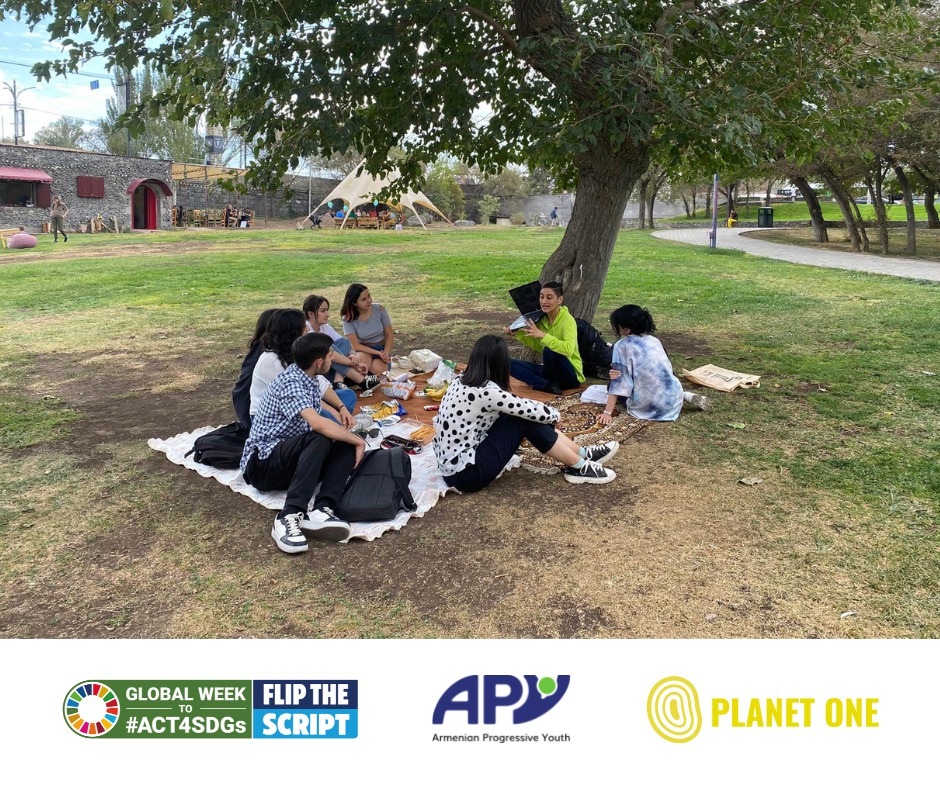
Garbage Reporting Website for Local Communities, Georgia
How can littering in Georgia be reduced and SDG 12 “Responsible Consumption and Production” be achieved? A response to these challenges is the NoGarba.ge website, an online platform for environmental activism in Georgia, centered around an interactive, crowd-sourced map highlighting littered locations. NoGarba.ge enables users to explore comprehensive information about environmental littering and contribute additional data, including photos and videos, depicting sites with issues such as a polluted picnic area or an illegal dumping site. The project “Garbage Reporting Website for Local Communities” focused on improving the collection of information about littered places in Georgia, with an emphasis on making it more accessible and user-friendly. The website, accessible via https://nogarba.ge/, serves as a resource for individuals and communities alike and facilitates collective efforts to combat littering and promote sustainable practices.
Integration of Women during War, Ukraine
What are the key issues of women in Ukraine experiencing the devastating consequences of the Russian full-scale war and which support should be provided? And how can cooperation between governmental and non-governmental organizations be strengthened in the context of supporting women victims of war?
With SDGs 16 “Peace and Justice” and 17 “Partnerships for Achieving the Goals” in mind, 70 women, representatives of state and public institutions as well as experts gathered at a hybrid round table to find answers to these questions. The event, organized by the NGO “Women’s Federation for World Peace”, addressed key challenges, identified categories for support and led to the creation of working groups who will provide psychological, social and humanitarian support to women affected by war. With the round table, the organizers and participants laid the foundation for further cooperation on the path to implementing SDGs 16 and 17 in Ukraine.
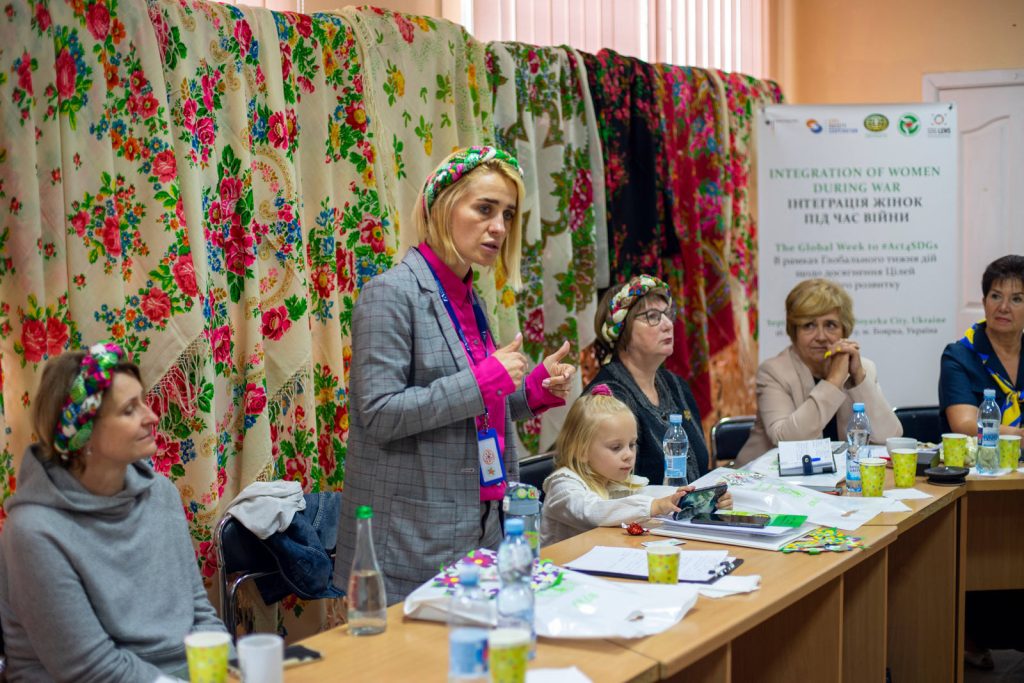
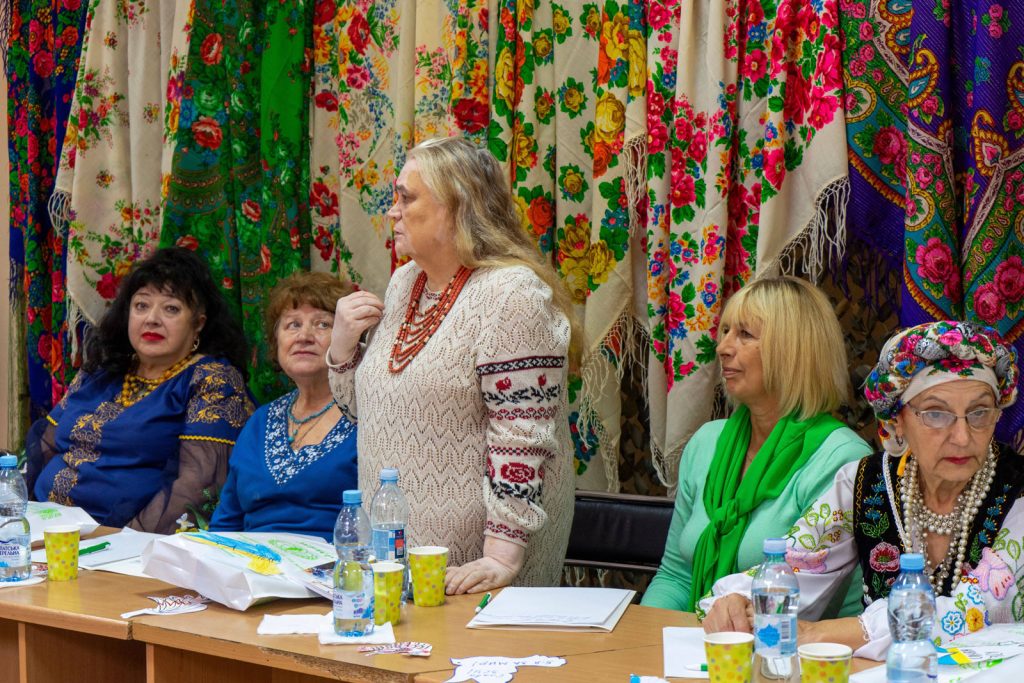
School Meals and the SDGs, Georgia
How can school meals contribute to the implementation of the SDGs? The Georgian Association Education for All (EFA) translated and updated the World Food Programme report dealing with this question into Georgian to raise awareness on the importance of school nutrition for the 2030 Agenda. The report laid the foundation for further activities on the topic of school meals and SDGs. EFA organized a conference for 40 participants who discussed food in schools and its importance especially for SDG 2 “Zero Hunger”, SDG 4 “Quality Education” as well as SDG 5 “Gender Equality”. Their activities were accompanied by an online advocacy campaign.
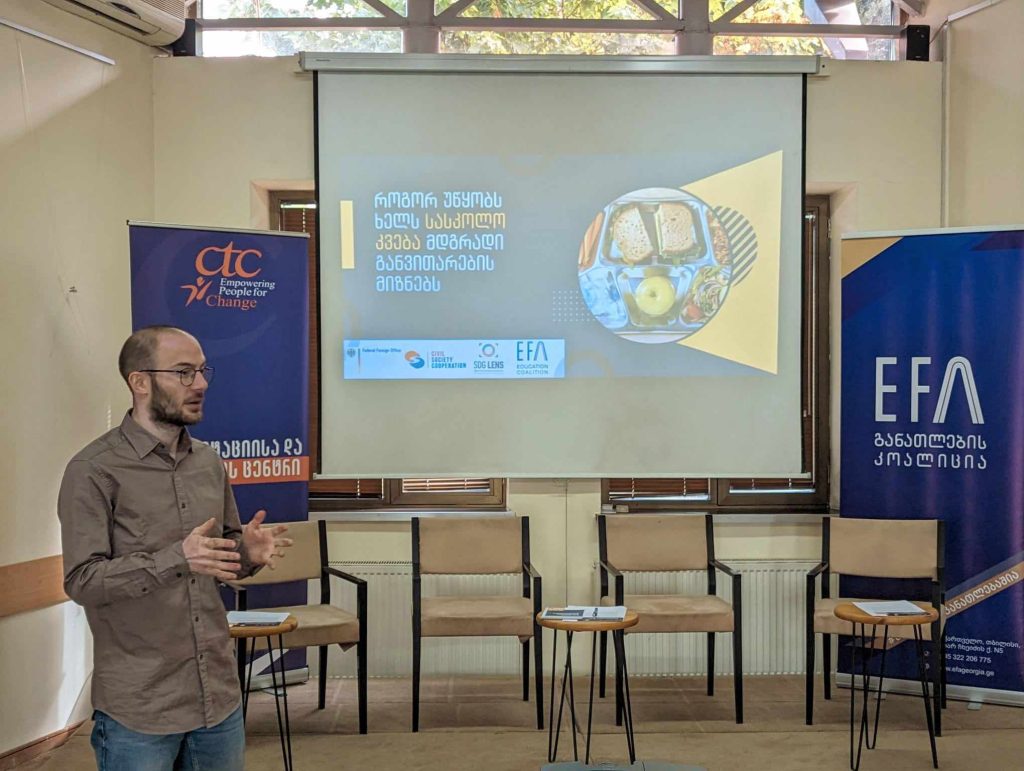

Advocacy Campaign for Inclusive and Sustainable Urban Development, Azerbaijan
Uniting non-profit organizations and civic actors for SDG 11 “Sustainable Cities and Communities” and advocating for the rights of vulnerable demographic groups – this was the aim of the advocacy campaign for inclusive and sustainable urban development, implemented by GEM CSR and ESG Consulting. During three strategic meetings with NGO representatives, students, architects, business professionals, individuals with disabilities, environmentalists, activists, and journalists, different perspectives and best practices on inclusive and sustainable urban development were discussed. The participants identified challenges and possible solutions, which were summarized in a proposal for the relevant government bodies such as the State Agency for Urban Planning and Architecture of the Republic of Azerbaijan, and asked for consideration and further action. Additionally, the measures were accompanied by an online campaign.
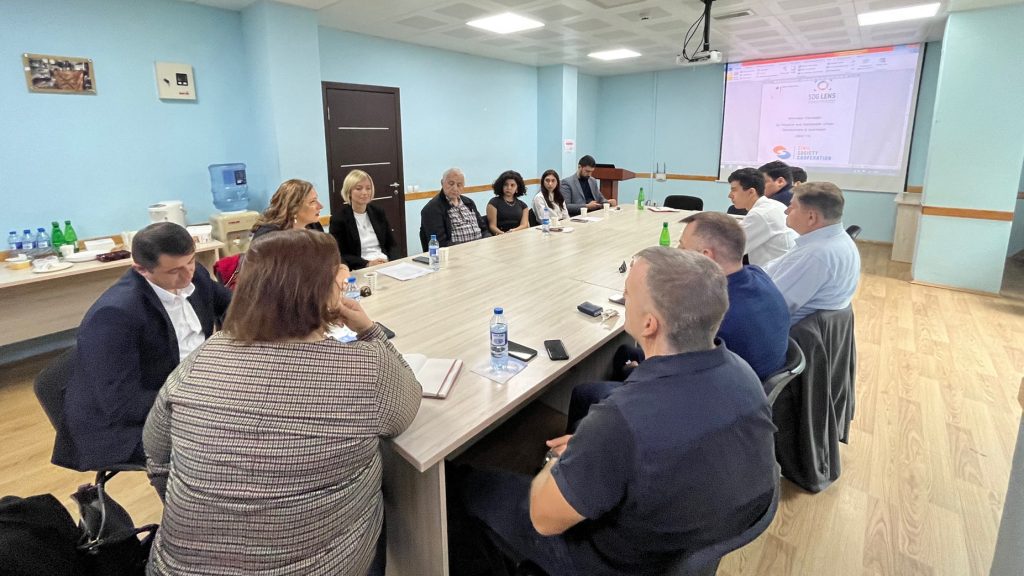
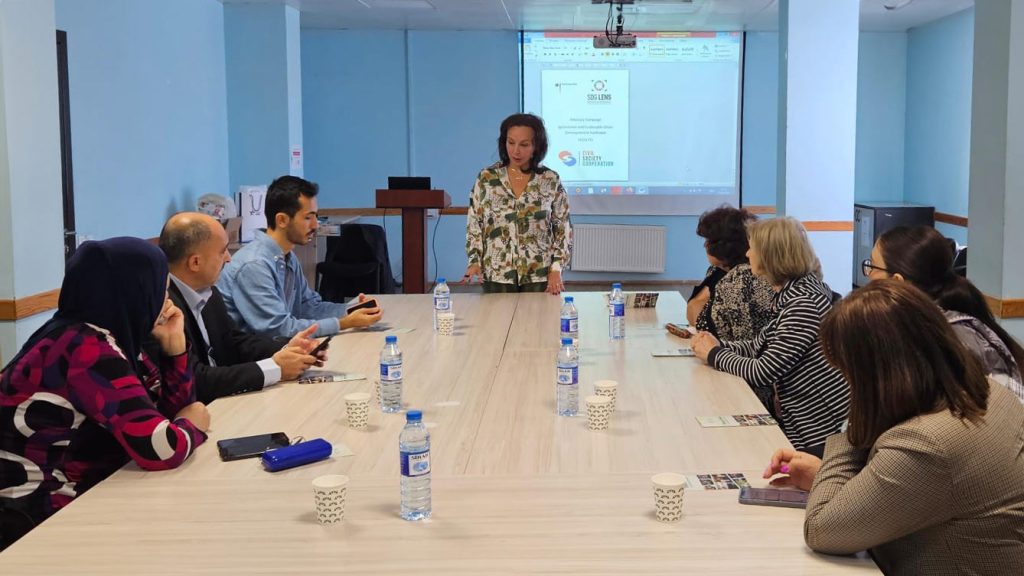
Advocacy for the Right of Women to Participate at the Decision Process, Moldova
Women from rural areas in Moldova are very vulnerable to the consequences of the climate crisis, especially in terms of access to water and sanitation. The project “Advocacy for the Rights of Women to participate in the Decision Process”, implemented by the Association Women for the Contemporary Society, targeted women who were interested in participating, learning and understanding how decisions are made by the local community, especially with regard to their rights in the context of climate change. In September, 25 women participated in a seminar where they learned more about SDG 13 “Climate Action” and SDG 5 “Gender Equality” and how they can participate in decision-making processes. 13 women later became involved in local commissions, deepening their understanding of local engagement.
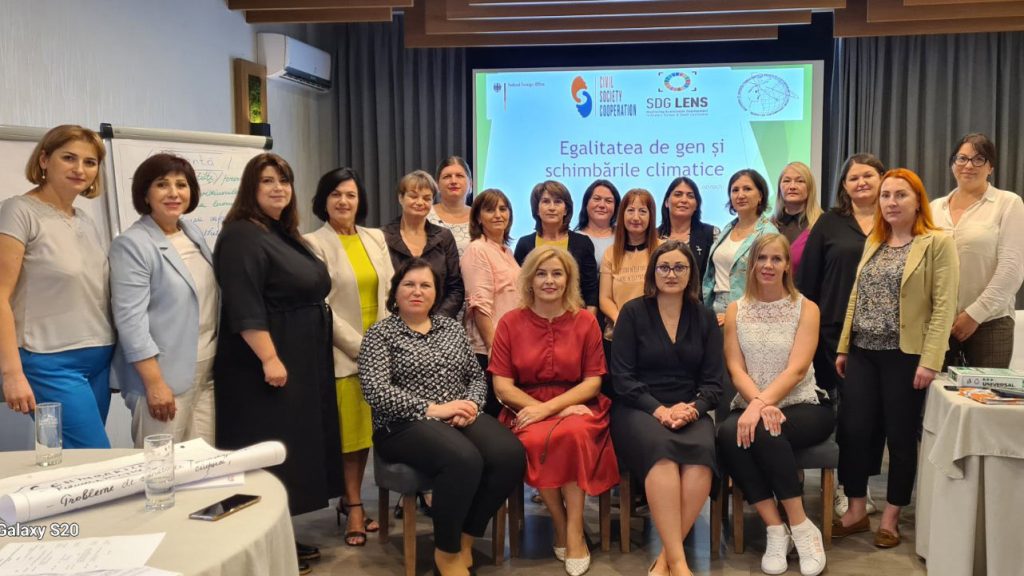
Georgian Farmers for Responsible Production, Georgia
Responsible production and good agricultural practices are important factors in mitigating climate change – this is the message conveyed by the Georgian Farmers Association (GFA) with its social media campaign targeting SDG 12 “Sustainable Consumption and Production”. Local farmers and an agronomist were featured in a series of quote cards describing their best practices of responsible farming.
Youth for Sustainable Development in Belarus
While young people play a crucial role in achieving the SDGs, they often lack the knowledge and skills to get involved. This is particularly true in Belarus, where freedom of expression has declined rapidly since August 2020. The two-day online forum “Youth for Sustainable Development in Belarus” brought together 20 young people from Belarus to discuss the role of youth in achieving the SDGs with a particular focus on SDG 13 “Climate Action” and SDG 16 “Peace, Justice and Strong Institutions”. In plenary discussions and a laboratory, the participants reflected on the challenges and opportunities of youth participation in the SDG implementation process in Belarus and drafted the Belarusian Youth Declaration on the SDGs.
Watch the livestream of the event here.
Subscribe to our Newsletter
SDG LENS. Monitoring Sustainable Development in Eastern Europe & South Caucasus is a capacity-building program for civic actors, representatives of NGOs and grassroots initiatives, researchers and experts from Armenia, Azerbaijan, Belarus, Georgia, Moldova, and Ukraine.
